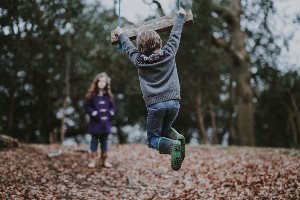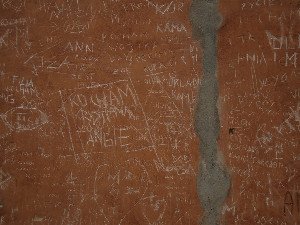Bayu Bagas Hapsoro, Putri Ayu Agustyarini, Jazilatun Nafisah
Pemanfaatan Sumber Daya Lokal Selada Air Melalui Pelatihan Pembuatan Crackers Selada Sebagai Alternatif Kuliner Berkelanjutan
Introduction
Pemanfaatan sumber daya lokal selada air melalui pelatihan pembuatan crackers selada sebagai alternatif kuliner berkelanjutan. Pelatihan pembuatan crackers selada air tingkatkan keterampilan masyarakat Karangsari dalam mengolah sumber daya lokal menjadi kuliner berkelanjutan. Ciptakan peluang usaha & ekonomi lokal.
Abstract
Optimal use of local resources is one of the keys to creating sustainable culinary innovation. This research aims to improve the skills of the people of Karangsari Village, Pulosari District, Pemalang Regency in processing watercress, a local commodity that is abundant in the area, into culinary products that have high selling value, namely watercress crackers. The training on making watercress crackers carried out by the UNNES GIAT 9 team used the method of transferring knowledge and skills directly to the women of RT 17 in Nusa Hamlet. The results of this training show an increase in participants' knowledge and skills in processing watercress into innovative and sustainable culinary products. Another positive impact is the creation of home business opportunities for local communities, which supports local economic development and the preservation of culinary culture. Thus, this training succeeded in encouraging the use of local resources as a solution in creating sustainable culinary alternatives that can compete in the global market.
Review
This paper presents a highly relevant and timely initiative focused on leveraging local resources for sustainable culinary development, a critical area for rural economic empowerment. The objective of improving community skills in processing abundant local watercress into high-value crackers is commendable, aligning perfectly with the principles of local food systems and sustainable livelihoods. The abstract clearly articulates the project's aim to foster culinary innovation while simultaneously creating home business opportunities, thereby contributing to local economic development and the preservation of culinary culture. Such practical interventions are vital for bridging the gap between local resource availability and market-ready products. The methodology employed, involving the direct transfer of knowledge and skills to a specific target group—the women of RT 17 in Nusa Hamlet—is a direct and effective approach for community-based projects. The reported outcomes, including the increase in participants' knowledge and skills, are positive indicators of the training's success. The emphasis on creating innovative and sustainable culinary products, alongside the generation of home business opportunities, underscores the multifaceted benefits of this program. It's particularly strong in demonstrating how a single intervention can address both skill development and economic upliftment by transforming a readily available commodity into a commercially viable product. While the abstract provides a strong overview of the project's intent and positive preliminary results, a more detailed presentation in the full paper would greatly enhance its impact. Future iterations or the full manuscript could benefit from elaborating on the specific metrics used to assess the increase in knowledge and skills, perhaps through pre- and post-training evaluations. Furthermore, quantitative data regarding the economic impact, such as the number of businesses established, initial sales figures, or participant income growth, would strengthen the claims of economic development and market competitiveness. Discussing the long-term support mechanisms for these home businesses and potential scaling-up strategies would also add significant value, ensuring the sustainability of these initiatives beyond the initial training phase.
Full Text
You need to be logged in to view the full text and Download file of this article - Pemanfaatan Sumber Daya Lokal Selada Air Melalui Pelatihan Pembuatan Crackers Selada Sebagai Alternatif Kuliner Berkelanjutan from Jurnal Bina Desa .
Login to View Full Text And DownloadComments
You need to be logged in to post a comment.
Top Blogs by Rating
Unmasking the Macabre: The Dar...
By Sciaria
Unleash Your Inner Recess: The...
By Sciaria
Electro: The Art of Engineered...
By Sciaria
Favorite Blog
Whispers from the Walls: Unloc...
By Sciaria
The Gamification of Governance...
By Sciaria
Unmasking the Macabre: The Dar...
By Sciaria
Related Research
Analysis of numeracy literacy in developing students mathematical creativity in elementary school
Pengaruh kualitas produk dan harga terhadap keputusan pembelian ac daikin pt. mitra indo teknik
Iäkkäiden toimintakyky ja koettu avuntarve suomessa – terve suomi -tutkimuksen tuloksia
Share
Notice Board
- INFLUENCE OF ROOM-TEMPERATURE IONIC LIQUIDS ON THE ELECTROSYNTHESIS OF CUBDC TYPE METAL-ORGANIC FRAMEWORKS: CRYSTALLITE SIZE AND PRODUCTIVITY
- SEISMIC INTERPRETATION USING RMS AMPLITUDE AND ENVELOPE ATTRIBUTES TO IDENTIFY HYDROCARBON PROSPECTS IN THE “CAT” FIELD, CENTRAL SUMATRA BASIN
- IMPROVING STUDENTS’ SELF-DIRECTED LEARNING THROUGH VISUAL NOVEL GAMES: ITS EFFECTIVENESS AND POTENTIAL




